#edward stevens
Text
Super Random Food For Thought:
@icarusbetide’s Edward Stevens AU post earlier got me to reread Stevens’ earliest surviving letter to Hamilton from December of 1777. Every time I reread this letter (and often, which I shall explain), I’m always struck by this one portion:
Why have you not written me a single Line since our Separation? Has your Anxiety for publick Affairs entirely eradicated from your Mind all remembrance of your private Concerns? Or have you forgotten those Vo⟨ws⟩ of eternal Friendship, which we have so often mutually exchanged? I am perfectly at a Loss I assure you, my Dr: Hamilton, to account for your Silence. I have written you frequently, and, as I know that you was at a Distance from New York, enclosed your Letters to some of our common Friends in that City, and requested them to transmit them to you.
“To Alexander Hamilton From Edward Stevens [23 December 1777],” The Papers of Alexander Hamilton, Volume I: 1768-1778 Ed. Harold C. Syrett, Columbia University Press, 1961, pp. 369-371. [Founders Online Link]
All I’m left to always ask is: what happened here? Did Hamilton in fact write to Stevens and his letters just miscarried across the Atlantic? Did Hamilton intentionally not write to Stevens? If so, why? Stevens left for Edinburgh after graduating from King’s College in 1774 to pursue further education, so this places this letter about three years later. That’s a significant amount of time and explains Stevens’ emphasis on Hamilton’s silence as seen above. We have later letters that Stevens wrote to Hamilton, but beyond Hamilton’s initial surviving letter to him (the famous “I wish there was a War” letter), there are no other letters written from Hamilton to Stevens that were printed in The Papers of Alexander Hamilton (see here).
The reason I’ve read this letter so many times is due to TAI which may be a bit silly. This letter is grouped with a couple of others in what I like to personally refer to as the “pillar letters” that have informed my creative decisions for the main arc of Volume I and to that end, part of the larger arc for the rest of the series. A few of these include the previously mentioned war letter, Hamilton’s letter to Laurens of April 1779, a letter Hamilton wrote Robert Troup in 1795, and some others but this is besides the point.
Of course, The American Icarus is fictional and thus I’ve decided that Hamilton simply ignoring Stevens is an interesting take to explore and build part of a character arc from, but historically speaking, I just have too many questions.
The fact that Stevens (more than once) addresses Hamilton as “my dear Hamilton” in this letter I s also interesting to note, but there’s not really much to conclude there. This post in its entirety is inconclusive, but as I said at the top this is just my food for thought.
#grace’s random rambles#alexander hamilton#the american icarus#TAI#edward stevens#amrev#amwriting#historical letters#the papers of alexander hamilton
27 notes
·
View notes
Text
i was brushing up on edward stevens, who after graduating from king's college in 1774, went to the university of edinburgh - i heard that it was considered the best medical school of its time?
now, we know that neddy would refer to hamilton as "my Dr. Hamilton" (as seen in this lovely 1777 pls text me back letter he wrote from edinburgh) and that hamilton took anatomy-related classes at king's college. clearly they were both interested in medicine.
if anyone has a theory, please answer: if the war had not broken out, would hamilton have eventually gone to edinburgh like neddy to get a medical degree? i know that he only got 4 years tuition worth of money from his st. croix benefactors for his college degree, but after he graduated, did they plan to help him further? if i'm not mistaken, they wanted him to come back eventually as a doctor or lawyer.
going further, if hamilton had expected to go to the university of edinburgh, do y'all think he was thinking about his scottish relations? would he have potentially connected with his uncle? it's very intriguing to me, seeing as he was apparently initially against revolution and a scottish somewhat noble family would've most likely being immensely loyal to britain, right? in other words, if he went to king's college just a few years earlier (maybe graduated even earlier than 1774 since he wanted an accelerated course) and had gone to edinburgh with neddy - saw war coming - would he potentially have been...a british soldier?
#also curious how neddy initially felt about the revolution#i know he was in that debate club ham and friends made#and he obviously supported the revolution in his letters to ham#but curious how much of that was loyalty to his friend vs genuine revolutionary passion#alexander hamilton#edward stevens#historical hamilton#amrev#amrev fandom
15 notes
·
View notes
Text
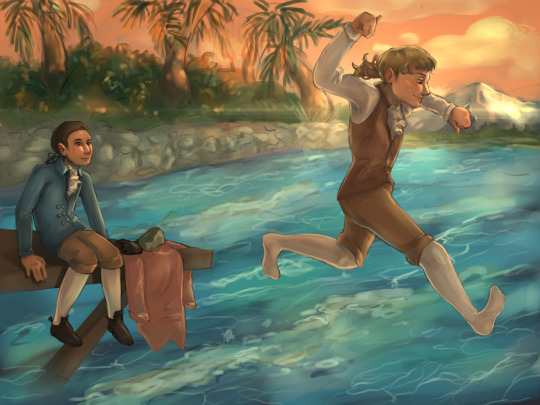


i’m gonna start making more baby hamilton art cuz it’s so scarce in this fandom 💔
#amrev#amrev art#historical hamilton#alexander hamilton#edward stevens#historical alexander hamilton#hamilton#hamilton fanart#pixs art
123 notes
·
View notes
Note
I have heard word someone around here be ill... Is there anything I can be of assistance for, sir?
- @edward-stevens
Ah, Monsieur, it’s… it’s @emilia-chopin. She’s unwell again. I’m scared, I think it could be linked to the tuberculosis…
28 notes
·
View notes
Note
You mention in a reblog that it would have been very easy for Hamilton's family-in-law and enemies to discover his real birthdate. Genuinely, though - how? Records, if they were accurate or even kept, were inaccessible to them. Hamilton's West Indies contacts were all clearly muddled about his birth year (given the many contradictory answers - and frankly, I wouldn't know off hand when many of my close friends were born either). Surely his lying about it would have been trivially easy?
I hadn't meant by records, seeing as how we struggle to this day to find any concrete records of Hamilton's true birthyear. But yeah, his contacts. A good, but small, handful of Hamilton's associates from the West Indies were also located at New York, or the Colonies in general—And others at least remained in contact with him or his family. To name a few, Hamilton's father and cousin, Anne Mitchell, remained in contact with him, and Anne even visited and wrote to Eliza after his death. We have scarce surviving correspondence between Hamilton and his father, but if he was planning to let him move to NYC to live with them; it can be speculated that Eliza may have written a few letters to him, or he sent his own to others in New York.
Or the can of worms Edward Stevens' offers, he was Hamilton's boyhood best friend from St. Croix, and attended King's College where they attended the same class club and had shared some of the same friends, Nichoals Fish, Robert Troup, etc. If there was one person who we had to trust to know Hamilton's birthyear out of the surviving relatives or friends he had at the time, it would have likely been Stevens. Stevens's brother-in-law, James Yard, knew a good amount about Hamilton and his childhood considering later he was able to provide information for Timothy Pickering, who was planning to write a biography about Hamilton. The same one that mentions the possibility of Thomas Stevens being Hamilton's real father. Additionally, there is the Kortright family; Monroe's wife, Elizabeth Kortright Monroe, was a cousin of Hester Kortright Amory, Stevens's wife. And Elizabeth K. Monroe's uncle was one of Hamilton's employers from the Island, Cornelius Kortright, who worked with Nicholas Cruger. He helped handle Hamilton's financial dealings when he first made it to the Colonies. With all this being said, I highly doubt everyone was just keeping this a secret. Especially with their close relations to James Monroe, one of Hamilton's rivals, who could have easily used it against him.
And going back to Cruger, he would have definitely known Hamilton's contrasting age considering he was his employer at the Cruger Counting house. He also moved back to New York and saw Hamilton again, even once there were rumors spreading by the press that Hamilton could become governor with him as lieutenant governor in 1795. Catharine Church, the eldest Church daughter, married Bertram Peter Cruger, Cruger's son.
And all of Hamilton's associates from the Colonies roughly followed the 1757 belief. But you are right saying; “and frankly, I wouldn't know off hand when many of my close friends were born either.” Because as @46ten as recently added on, we are putting way too much emphasis on a birth year than what those of that day would. We value birth dates more strongly than when even as recently as a century ago, we did not. Today birth dates are now widely used for identification, but back when containing written documents was more of a hassle (As finding documents from Nevis has proven), not many were inclined to do such. In a day in age, where many families didn't even celebrate birthdays often, it wasn't much more than a passing thought for most. There is even a humorous story of Eliza forgetting JCH's birthday when he was young;
John is as industrious as usual and this Evening has ascertained that he is not more than twelve last August. I had thought him to have been thirteen but he is not more than twelve.
Elizabeth Hamilton to Philip Schuyler, [1804]

So, not only is it likely Hamilton wasn't even sure of his own birth year, but it wasn't a large deal back then. Does that mean it never would have been brought up? No, and I'm sure with all the previously mentioned close ties to Hamilton's in-laws and rivals, something would have noticeably not connected if so. And I doubt this many people were just in on Hamilton's whole facade. But it seems like a bunch of worthless mental gymnastics and risky lie for Hamilton to maintain for nearly 30+ years of his life, especially when many were out looking for anything to use against him.
#amrev#american history#historical alexander hamilton#edward stevens#james hamilton#anne mitchell#james yard#elizabeth kortright monroe#james monroe#cornelius kortright#nicholas cruger#history#birth year#queries#sincerely anonymous#cicero's history lessons#18th century#alexander hamilton
40 notes
·
View notes
Note
//✨timeskip ✨
Lad? We're all done... It was a bit of a struggle, but the bullet be out and your leg is stitched. Tis best to remain off of it and let it heal with the risk of the stitches coming undone.
- Ned Stevens
Very well, Sir... Why is the floor swimming?
27 notes
·
View notes
Photo

Yeah, yeah, the first Hamilton letter that we have record of, we’ve all seen it, but—
when the Projector is constant.
Projector.

it’s him. he’s the fucking projector.
8 notes
·
View notes
Text
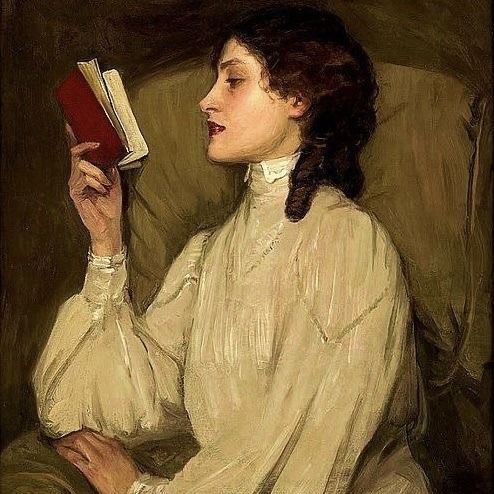
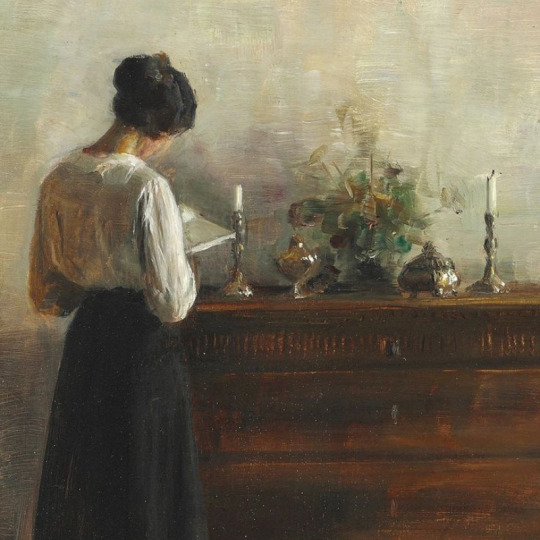
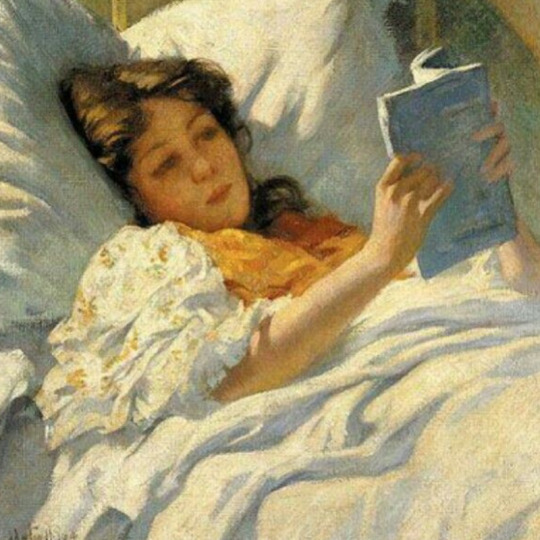
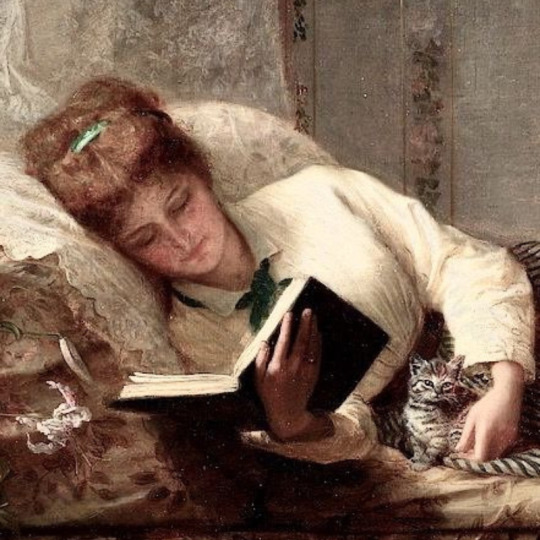
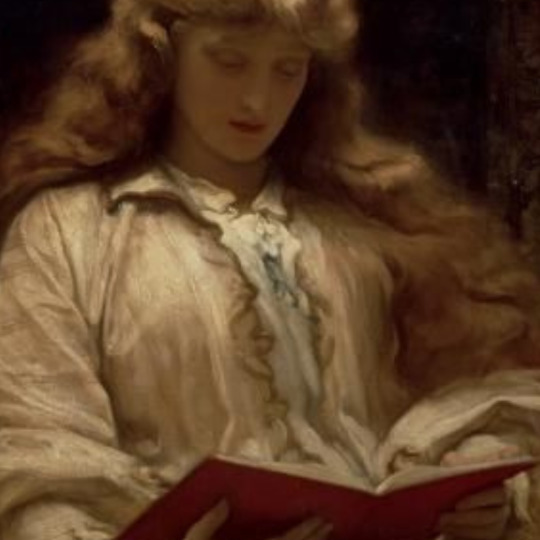
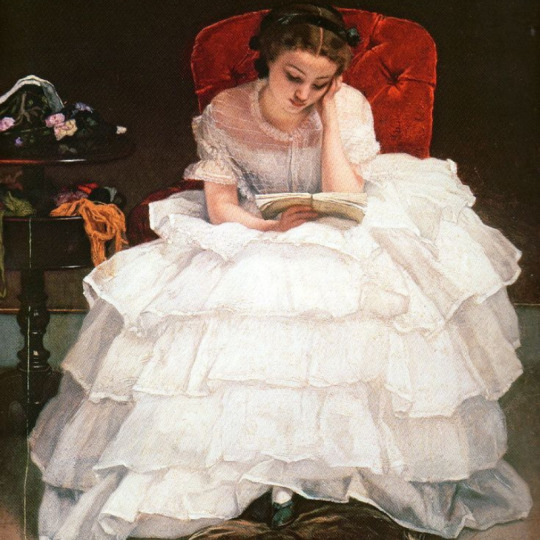
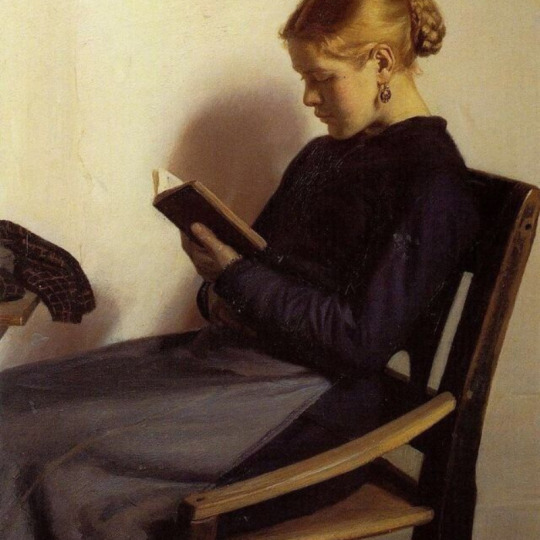
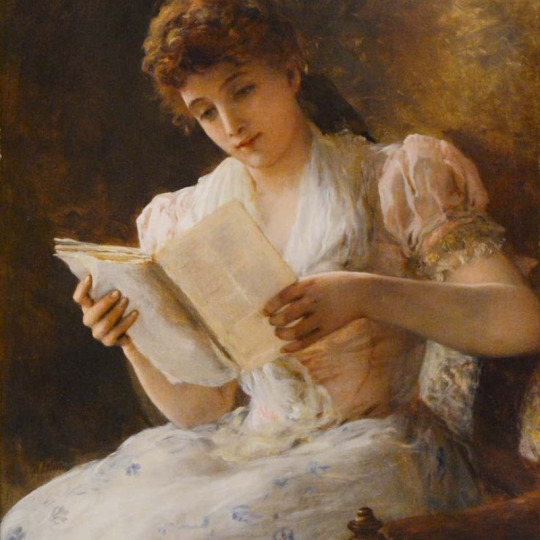
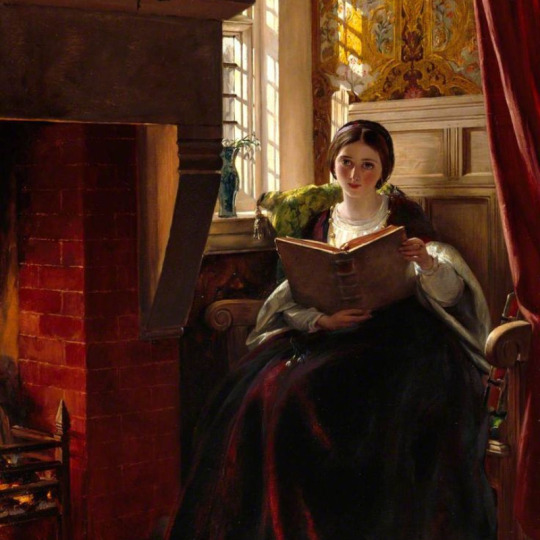
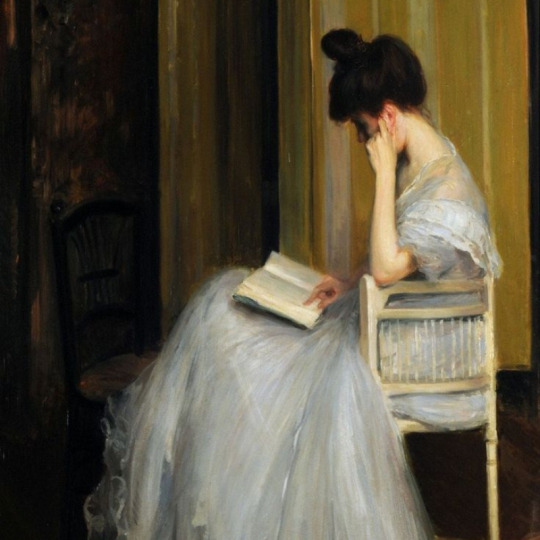
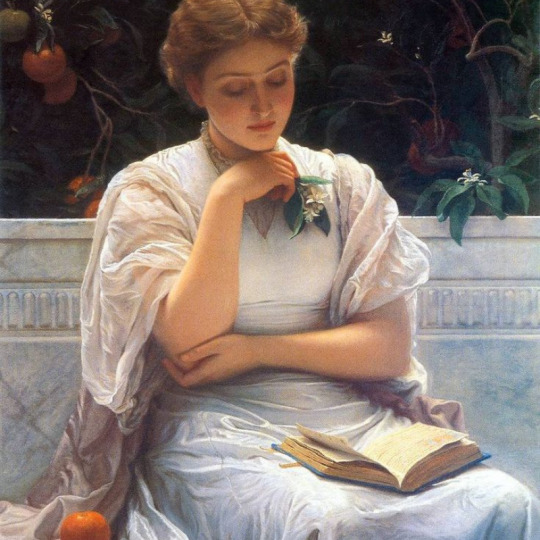
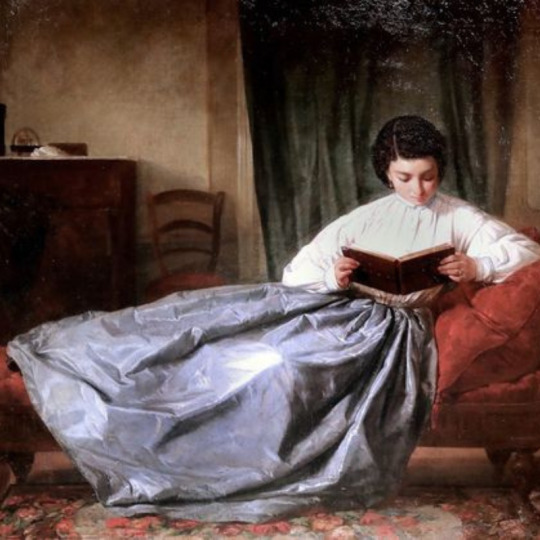

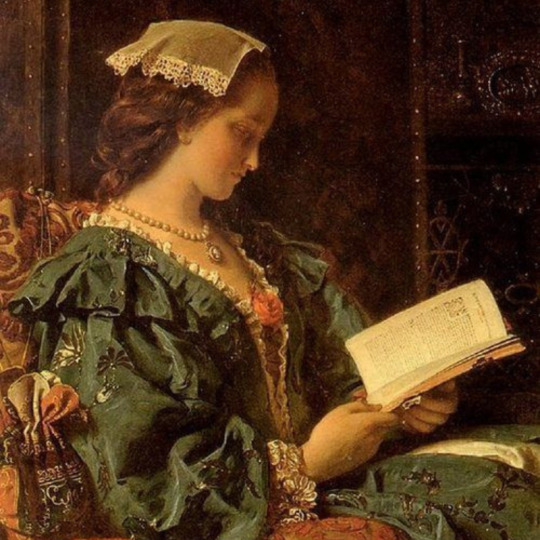

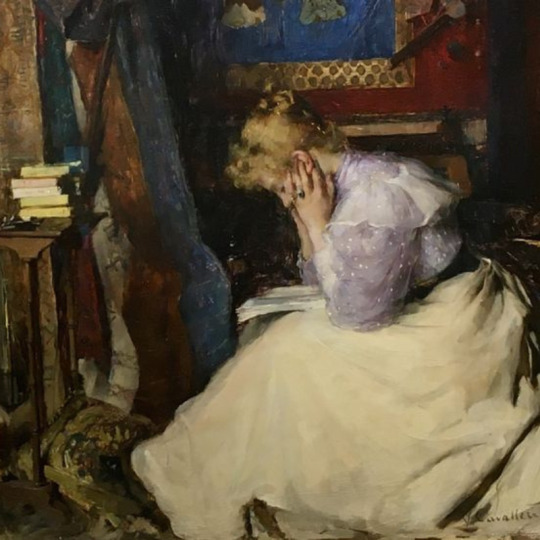
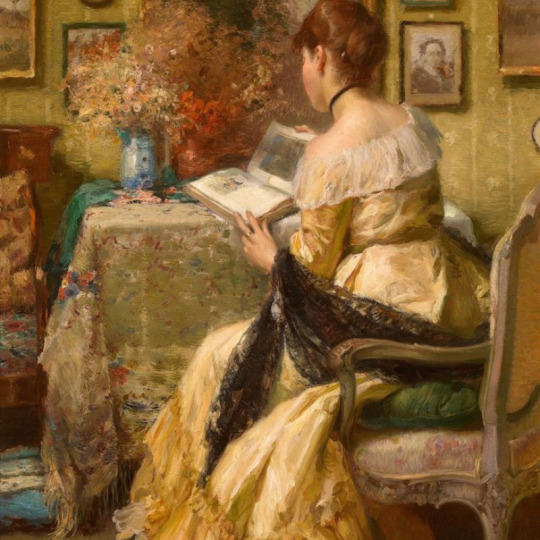
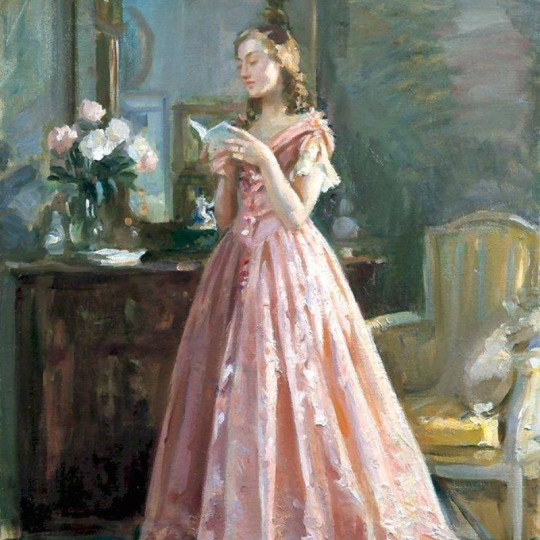
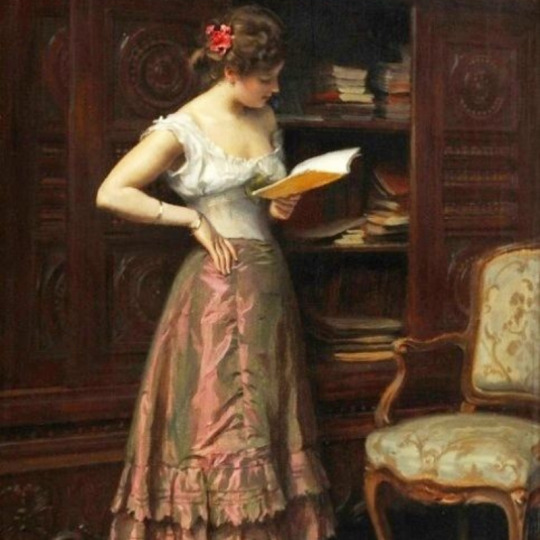
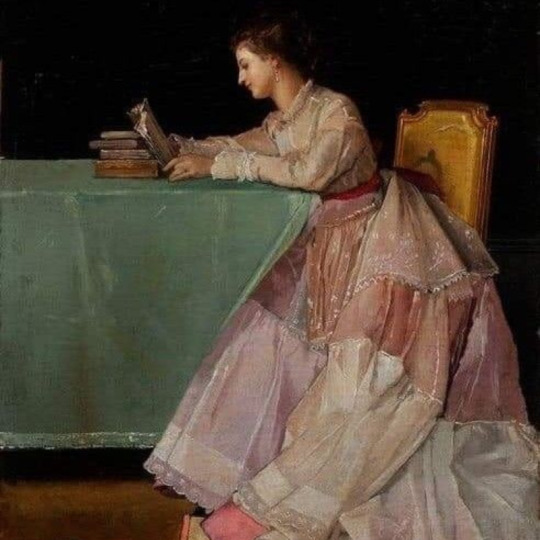
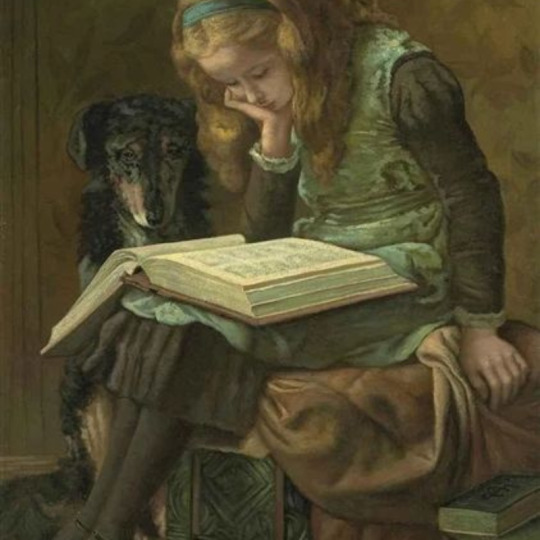
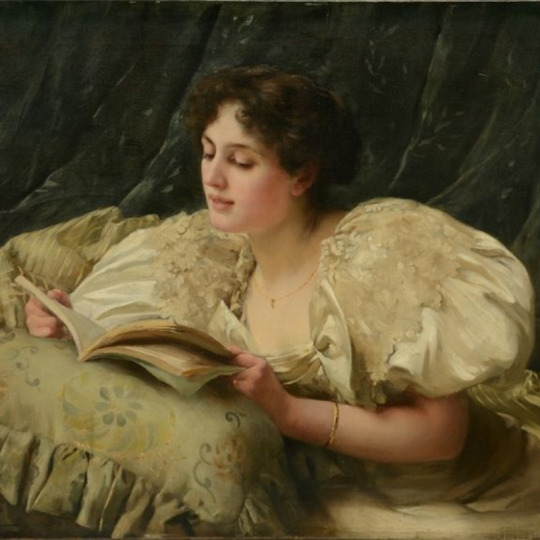

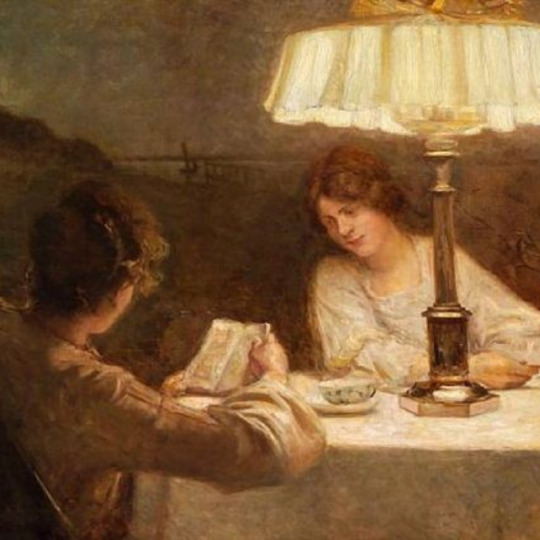
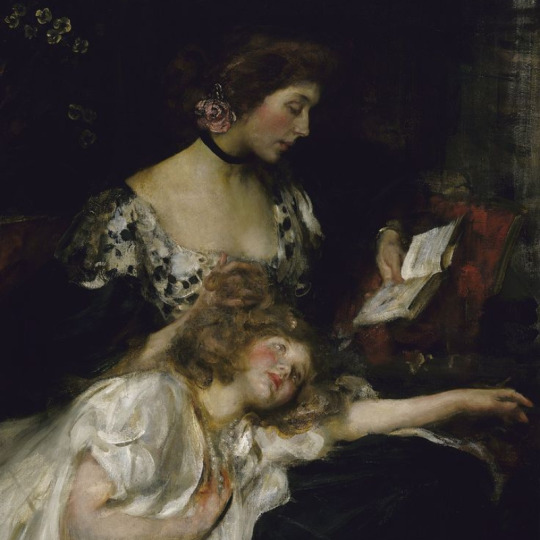
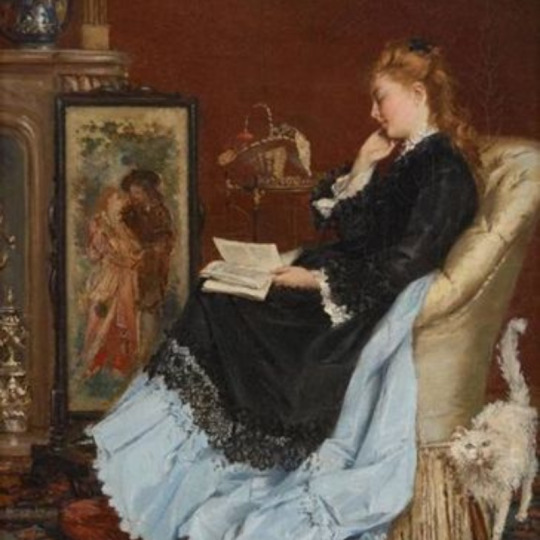

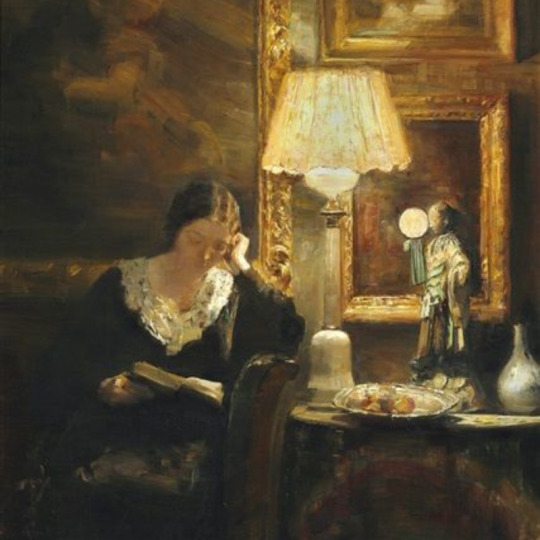
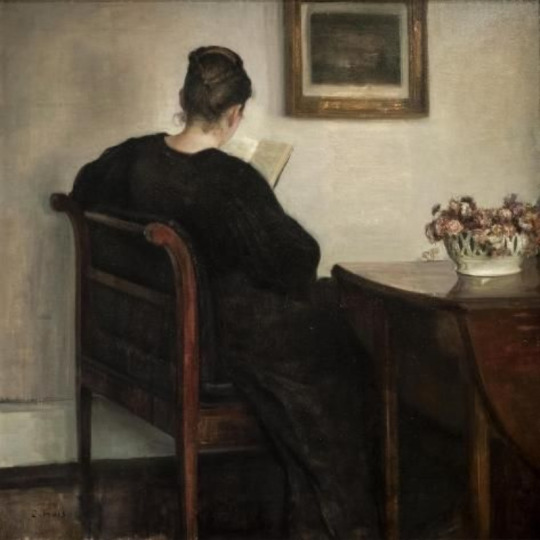
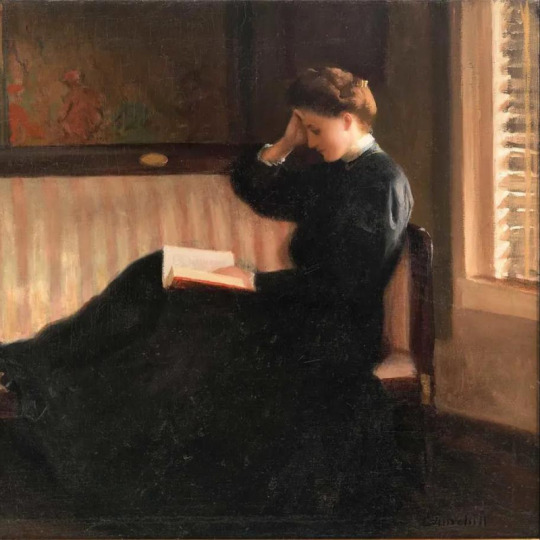
reading + art
#sir john lavery's “miss aura's the red book”#cant find artist or painting name#artist is willard leroy#artist is frederick morgan#the maid with golden hair by frederic lord leighton#girl reading by alfred emile stevens#young girl reading by michael peter ancher#woman reading book by william oliver#a pleasant corner by john callcott horsley#woman reading by jacques-emile blanche#in the orangery by charles edward perugini#artist is joseph duran#girl with pigtails by samuel henry willam llewllyn#the love tale by francis john wyburd#lady sirling maxwell by james guthrie#artist is roma ribera#a lady reading a book by albert chevallier tayler#artist is wilfred gabriel de glehn#woman reading standing by frederic dufaux#artist is jules-adolphe goupil#view reading by charles james#cant find artist or painting#young girl reading by jean-honore fragonard#artist is christian valdemar clausen#mother and child by james jebusa shannon#artist is albert roosenboom#lady with a book in a garden by frantisek dvorak#aften by carl vilhelm holsoe#reading woman by carl holsoe#woman reading on a sette by william w churchill
2K notes
·
View notes
Text
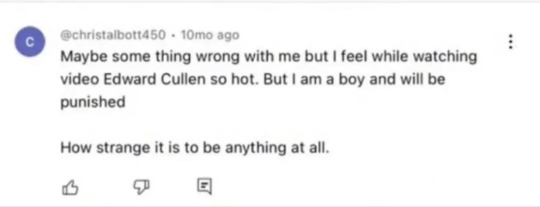
hope christalbott450 is having a good day :(
#aww#twilight#twilight saga#edward cullen#mlm#very richard siken#sufjan stevens#etc#richard siken#a primer for the small weird loves#gay#youtube comments#lgbtq#internalized homophobia#neutral milk hotel#in the aeroplane over the sea
2K notes
·
View notes
Text
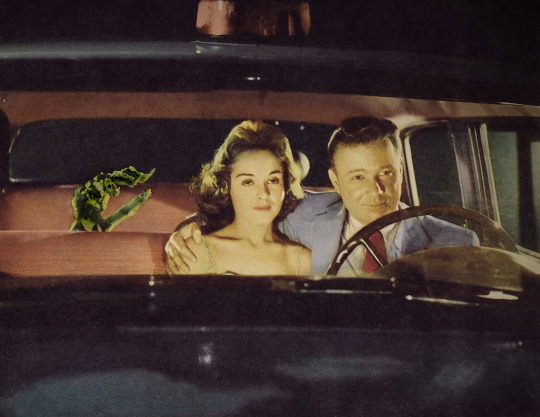
Gloria Castillo and Steven Terrell in Invasion of the Saucer Men (1957)
#invasion of saucer-men#gloria castillo#steven terrell#1950s horror#1950s sci fi#1950s movies#1957#edward l. cahn#comedy#sci fi horror
221 notes
·
View notes
Text
What’s your must have travel item #MondayQuestion
WDYM MOLDY'S ID OR PASSPORT???
#hockey#umich hockey#umich#umich boys#michigan hockey#michigan wolverines#rutger mcgroarty#marshall warren#jake barczewski#steven holtz#dylan duke#ethan edwards#nick moldenhauer#tj hughes#kienan draper#jacob truscott#philippe lapointe#luca fantilli#garret schifsky#frank nazar#tyler duke#seamus casey#gavin brindley
174 notes
·
View notes
Text
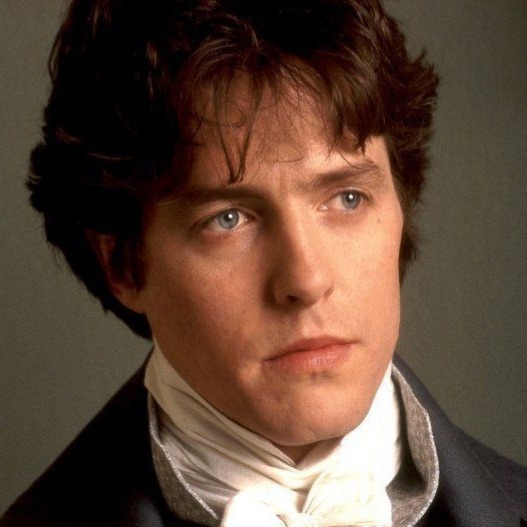
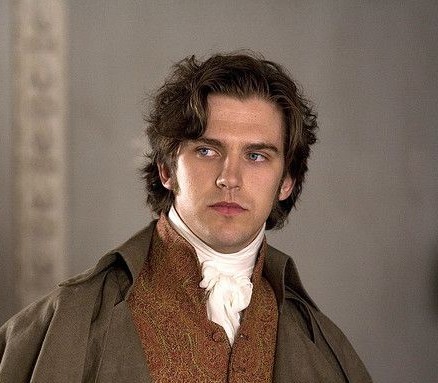
Propaganda...
Edward Ferrars (1995):



Edward Ferrars (2008):


C
#hotjaneaustenmenpoll#round three#edward ferrars#sense and sensibility#sense and sensibility 1995#sense and sensibility 2008#hugh grant#dan stevens
98 notes
·
View notes
Text
nobody talk to me spotify shuffled my playlist and played "seven", the ultimate alexander and edward stevens song. i'm in my dr. ham & dr. neddy feels rn 😭
And I've been meaning to tell you
I think your house is haunted
Your dad is always mad and that must be why
And I think you should come live with
Me and we can be pirates
Then you won't have to cry
Or hide in the closet
And just like a folk song
Our love will be passed on
Please picture me
In the weeds
Before I learned civility
I used to scream ferociously
Any time I wanted
I, I
Sweet tea in the summer
Cross my heart, won't tell no other
And though I can't recall your face
I still got love for you
Or have you forgotten those Vows of eternal Friendship, which we have so often mutually exchanged? I am perfectly at a Loss I assure you, my Dr: Hamilton, to account for your Silence.
#THEM#their relationship is so underrated#i dunno the idea of someone who was right there for alex when his childhood went to shit#later coming to america when he was this accomplished statesman#who congratulated him and saw everything that he had become while remembering who he was? the past he hardly ever brings up??#the angst and the trust and just. everything.#also some circumstantial evidence suggests he went back to st. croix 1804 or a bit later and i think ham's death might've played a role#alexander hamilton#edward stevens#historical hamilton#amrev
15 notes
·
View notes
Text



Chicago, Sufjan Stevens | Morning Sun, Edward Hopper | Play As It Lays, Joan Didion
#sufjan stevens#edward hopper#morning sun#play as it lays#joan didion#webweaving#web weaving#web-weaving#parallels#dark academia#light academia#classic academia#grey academia#cottage academia
1K notes
·
View notes
Text
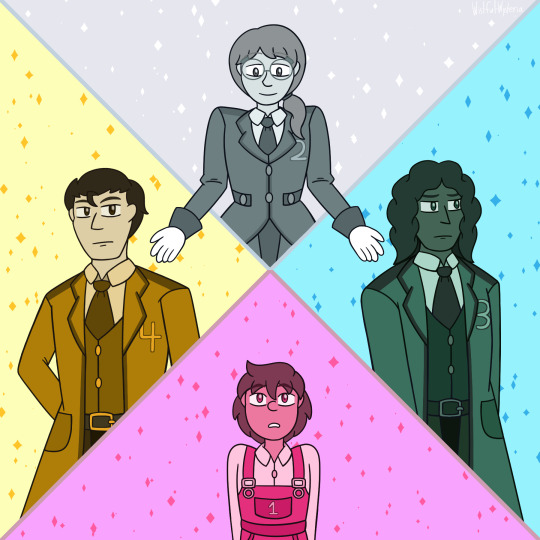
Edward, Henry, and Gordon all shine bright like diamonds. But Thomas is just a diamond in the rough.
Based on this image by @blueart2001

#wysty draws#thomas the tank engine#ttte humanized#railroad roundabout au#ttte thomas#ttte#gordon#ttte henry#ttte edward#I saw that image and thought 'Wow that's exactly how I imagined Thomas and his relationship with the Railway Trio!'#so low and behold~#Thomas as Pink Diamond is also giving me ideas for his character development huhu~#man I miss Steven Universe that was a cute cartoon#also whoa Thomas's overalls reveal?#railway authority
190 notes
·
View notes
Note
What were the founding fathers’ reaction to the Haitian Revolution?
Due to the Yellow Fever epidemic having a massive toll on the perception of Dominguans, initially Washington was dubious to support it. As it was believed that the Yellow Fever plague was brought to Philadelphia by ships carrying Dominguan refugees. Doctor Benjamin Rush was an eminent physician and abolitionist, but sincerely believed that the black population had immunity to the illness. And so also thought they had an obligation to attend to the afflicted. Which then created the Free African Society. Anyway, Rush was ultimately wrong; as black people died at a rate almost equal to that of the white's population.
So, while Washington was president (Until 1797), he wasn't supportive towards the Dominguans in rebellion. But this would change later on, when John Adams had been elected president. Following Joseph Bunel's arrival in 1798 - Toussaint L'Ouverture's diplomatic representative - Bunel had reportedly met with Adams and other government officials in 1798 or 1799 accompanied by his wife, Marie Bunel, who was a free Black creole.
This soon evolved into a political party dispute though. As - like many Federalists such as Hamilton, Pickering, and Washington - Adams saw supporting the rebellion as an opportunity to fighting against the common enemy, the French. Because the United States had been harassed by the French for years prior, and was then engaged in a Quasi-war with France. It was also seen as a chance to help the American trade, and merchants by gaining a valuable trading partner in the West Indies. Hamilton and Pickering convinced Adams to appoint Edward Stevens as the United States consul-general in Saint-Domingue. He sent Stevens to Haiti with instructions to establish a relationship with Toussaint and express support for his regime. The Federalist administration hoped to incite a movement toward Haitian independence, but Louverture maintained a colonial relationship with France. Stevens's title, “consul”, suggested a diplomat attached to a country, not a colony, reflecting the Adams administration's view of the Haitian situation. But overall, the Federalists rather saw it as an economic investment, and military enhancement.
But many Democratic-Republican's, or southern politicians/farmers, disagreed with the support to the Haitian revolution, particularly Thomas Jefferson. Jefferson was a slave owner with 600 enslaved people at his disposal. A great motive to his so-called “abolitionist” ideals, which was just that he wanted the slave trade system abolished and for black people to get deported, was the fear of the United States one day being faced with a slave rebellion. Especially since Jefferson lived in the south, where slavery was prominent. He believed that the black population should be deported as to protect planation owners. So, you can imagine that Jefferson's largest concern for the Haitian revolution was that it would inspire American slaves to revolt as well. Not to mention, Jefferson had initially urged the US government to support the French revolution for the common ideals of liberty, and patriotism. But the Federalists had argued they shouldn't cause riffs between America and Great Britain again, especially when their developing country and recovering militia was still all very fragile. Jefferson thought the support for the Haitian revolution was hypocritical, and endangering for the United States. This additionally sparked much slander of claiming the Federalists sided with monarchy and Great Britain, instead of more libertarian country's like France.
This also didn't go smoothly either, for soon relations between the two republics soured after Adams left office in 1800, and when Jefferson took charge, he refused to officially recognize Haiti until 1862.
#amrev#american history#haitian revolution#french history#frev#alexander hamilton#historical alexander hamilton#george washington#john adams#timothy pickering#edward stevens#thomas jefferson#founding fathers#history#queries#sincerely anonymous#cicero's history lessons#black history#slavery
36 notes
·
View notes